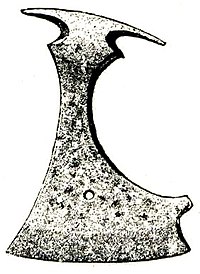
How Active is Active Learning: Value Function Method Versus an Approximation Method
Sign Up to like & getrecommendations! Published in 2018 at "Computational Economics"
DOI: 10.1007/s10614-020-09968-2
Abstract: In a previous paper Amman et al. (Macroecon Dyn, 2018) compare the two dominant approaches for solving models with optimal experimentation (also called active learning), i.e. the value function and the approximation method. By using… read more here.
Keywords: value function; approximation method; active learning;

Deep soccer analytics: learning an action-value function for evaluating soccer players
Sign Up to like & getrecommendations! Published in 2020 at "Data Mining and Knowledge Discovery"
DOI: 10.1007/s10618-020-00705-9
Abstract: Given the large pitch, numerous players, limited player turnovers, and sparse scoring, soccer is arguably the most challenging to analyze of all the major team sports. In this work, we develop a new approach to… read more here.
Keywords: function; value function; soccer; action value ... See more keywords

The Lipschitz Properties of the Value Function and the Solution Map to a Parametric Discrete Optimal Control Problem
Sign Up to like & getrecommendations! Published in 2020 at "Acta Mathematica Vietnamica"
DOI: 10.1007/s40306-020-00371-5
Abstract: Motivated by the works of Toan and Kien ( J. Nonlinear Convex Anal. 12 :635–650, 2011 ) and Thuy and Toan ( Acta Math. Vietnam. 43 :175–199, 2018 ) on the stability and the solution… read more here.
Keywords: solution map; map parametric; property; solution ... See more keywords

Value Function Computation in Fuzzy Models by Differential Evolution
Sign Up to like & getrecommendations! Published in 2017 at "International Journal of Fuzzy Systems"
DOI: 10.1007/s40815-017-0308-z
Abstract: In this paper, we show that the possibilistic mean values produce computation results that may differ in a nontrivial may from those obtained with the fuzzy extension principle. The evidence is carried out by comparing… read more here.
Keywords: computation; fuzzy; fuzzy models; computation fuzzy ... See more keywords

Continuity of the Value Function for Stochastic Sparse Optimal Control
Sign Up to like & getrecommendations! Published in 2020 at "IFAC-PapersOnLine"
DOI: 10.1016/j.ifacol.2020.12.537
Abstract: In this paper, we investigate the continuity of the value function for a stochastic sparse optimal control. The most common method to solve stochastic optimal control problems is the dynamic programming. Specifically, if the value… read more here.
Keywords: continuity value; value; optimal control; value function ... See more keywords

Value function, relaxation, and transversality conditions in infinite horizon optimal control☆
Sign Up to like & getrecommendations! Published in 2018 at "Journal of Mathematical Analysis and Applications"
DOI: 10.1016/j.jmaa.2017.02.009
Abstract: Abstract We investigate the value function V : R + × R n → R + ∪ { + ∞ } of the infinite horizon problem in optimal control for a general—not necessarily discounted—running cost… read more here.
Keywords: value function; optimal control; infinite horizon;

Can prospect theory explain the disposition effect? An analysis based on value function
Sign Up to like & getrecommendations! Published in 2017 at "China Finance Review International"
DOI: 10.1108/cfri-04-2017-0032
Abstract: Purpose The prospect theory is potentially an essential ingredient in modeling the disposition effect. However, many scholars have tried to explain the disposition effect with the help of prospect theory and they came to opposite… read more here.
Keywords: value function; disposition effect; value;

Recursive State-Value Function: A Method to Reduce the Complexity of Online Computation of Dynamic Programming
Sign Up to like & getrecommendations! Published in 2020 at "IEEE Access"
DOI: 10.1109/access.2020.2978254
Abstract: This paper proposed a method to reduce the computation quantity of dynamic programming to make the time consumption be acceptable for on-line control. The proposed method is the combination of model predictive control and state-value… read more here.
Keywords: tex math; method; state value; inline formula ... See more keywords

Attentional Factorized Q-Learning for Many-Agent Learning
Sign Up to like & getrecommendations! Published in 2022 at "IEEE Access"
DOI: 10.1109/access.2022.3214481
Abstract: The difficulty of Multi-Agent Reinforcement Learning (MARL) increases with the growing number of agents in system. The value function decomposition is an effective way to alleviate the curse of dimension. However, the existing methods usually… read more here.
Keywords: value function; high order; agent; decomposition ... See more keywords

Dynamic Spectrum Anti-Jamming With Reinforcement Learning Based on Value Function Approximation
Sign Up to like & getrecommendations! Published in 2023 at "IEEE Wireless Communications Letters"
DOI: 10.1109/lwc.2022.3228045
Abstract: This letter addresses the spectrum anti-jamming problem with multiple Internet of Things (IoT) devices for uplink transmissions, where policies for configuring frequency-domain channels have to be learned without the knowledge of the time-frequency distribution of… read more here.
Keywords: value function; reinforcement learning; function approximation; spectrum anti ... See more keywords

Multiagent Fully Decentralized Value Function Learning With Linear Convergence Rates
Sign Up to like & getrecommendations! Published in 2021 at "IEEE Transactions on Automatic Control"
DOI: 10.1109/tac.2020.2995814
Abstract: This article develops a fully decentralized multiagent algorithm for policy evaluation. The proposed scheme can be applied to two distinct scenarios. In the first scenario, a collection of agents have distinct datasets gathered by following… read more here.
Keywords: fully decentralized; linear convergence; policy; function ... See more keywords